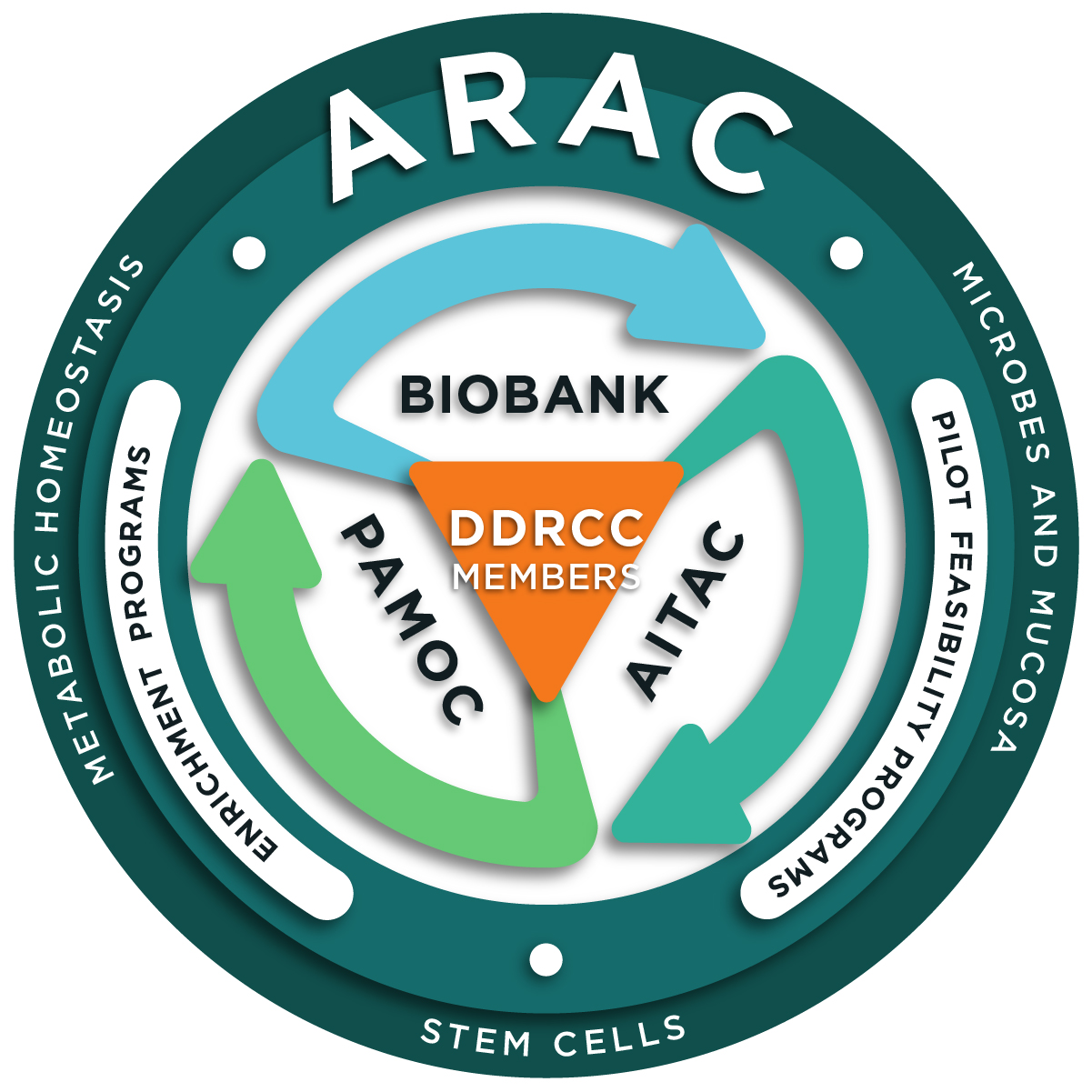Mission
The overarching mission of the Washington University Digestive Diseases Research Core Center (WU-DDRCC) is to promote collaborative, multidisciplinary research focused on interactions between host and environment in digestive disease.
The WU-DDRCC seeks to advance the health of patients with digestive diseases by supporting enabling technology and promoting the basic and translational research interests of its 51 Full + 30 Associate members. These interests are organized around three major themes:
- Host-microbial interactions, inflammation and mucosal immunity
- Stem cells, epithelial renewal, paligenosis and cancer
- Metabolic homeostasis, nutrient transport and enterohepatic signaling
 Central hypothesis
Central hypothesis
Our SCIENTIFIC PREMISE is that advances across the spectrum of digestive diseases require a multidisciplinary community of investigators, enabled by core infrastructure promoting collaboration career development and synergies that together foster scientific discovery impacting patient care.
This central hypothesis is pursued through the following specific aims:
- Provide a responsive Administrative Core (ARAC) that promotes collaborative and synergistic interactions among investigators from multiple disciplines engaged in digestive disease-related research.
- Organize and support biomedical cores and services that reflect current and future needs of the research base with state-of-the-art services and specialized expertise in a cost-effective and efficient manner.
- Provide a scientific enrichment program sponsoring visiting researchers and workshops to augment the scientific community, promote collaboration and stimulate development of new initiatives in digestive disease. Organize and support biomedical cores and services that reflect current and future needs of the Research Base with state-of-the-art services and specialized expertise in a cost-effective and efficient manner.
- Support and nurtures the careers of postdoctoral trainees, fellows and junior faculty to pursue investigation in digestive disease research, and by promoting diversity.
- Identify, fund and mentor new investigators interested in digestive disease research through an annual pilot and feasibility awards program.
- Promote and share technology development with other NIDDK-funded centers locally and DDRCCs regionally and nationally.